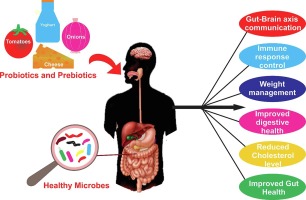
Researchers have discovered that blending fermented kefir with various prebiotic fibers yields more potent anti-inflammatory effects compared to consuming omega-3 supplements or fiber alone. The synergy, evaluated over a duration of six weeks in healthy adults, led to a greater reduction of inflammatory markers in the bloodstream than either intervention individually.
The investigation, spearheaded by experts at the University of Nottingham, assessed three well-known dietary supplements: omega-3 fatty acids (500 mg per day), inulin fiber (20 grams daily), and a synbiotic combination of goat’s milk kefir along with 18 different prebiotic fibers. All three methods decreased inflammation compared to controls who received no treatment, but the synbiotic group exhibited the most significant alterations.
Reasons for Enhanced Efficacy
The synbiotic method diminished seven various inflammatory proteins, such as IL-6 and interferon-gamma, both associated with the risk of chronic diseases. In contrast, omega-3 and fiber each reduced only one or two markers, predominantly TNF-alpha. The impact for the synbiotic group was markedly greater: reductions in proteins like SIRT2 and 4EBP1 surpassed those observed with the other supplements by a considerable margin.
What distinguishes this combination? Kefir introduces live bacteria and yeasts acquired from fermentation, featuring numerous strains of lactic acid bacteria. The prebiotic mixture, which includes fibers derived from psyllium husk, maitake mushroom, quinoa, and chickpeas, nourishes these microbes once they enter the gut. This generates a synergistic effect: the fiber supports the bacteria, which subsequently produce metabolites like butyrate that mitigate inflammation throughout the body.
Butyrate concentrations significantly increased in the synbiotic group, and elevated butyrate levels were linked with decreased IL-6, a pro-inflammatory cytokine involved in cardiovascular disease and metabolic disorders. This implies that the gut microbiome serves as a mediator, converting dietary components into systemic anti-inflammatory signals.
“Our research indicates that although all three dietary methods reduced inflammation, the synbiotic, which combines fermented kefir with an array of prebiotic fibers, displayed the most substantial and comprehensive effects.”
The study included 104 participants spread across three trials. The synbiotic trial comprised 40 individuals who ingested 170 ml of kefir alongside 10 grams of the prebiotic blend daily, while others consumed omega-3 capsules, inulin fiber, or no supplements. Blood samples were assessed using Olink’s 96-protein inflammation panel, which provides a broad overview of immune activity.
Consequences for Gut and Metabolic Health
Participants in the synbiotic group also experienced reductions in total cholesterol, LDL, and non-HDL cholesterol, although these changes did not directly correspond with shifts in inflammatory proteins. The researchers observed that the synbiotic group exhibited declines in mucosal chemokines such as CCL25 and CCL28, which are associated with gut lining inflammation and conditions like inflammatory bowel disease.
Dr. Amrita Vijay, who directed the study, stressed that the interplay between beneficial microbes and dietary fiber might be essential for maintaining immune balance. The results are consistent with previous studies highlighting that fermented foods lead to more profound immune modifications compared to isolated fiber supplements.
“This indicates that the interaction between beneficial microbes and dietary fiber may be critical for promoting immune balance and metabolic health.”
The study does have limitations. Sample sizes were relatively small, and the omega-3 and fiber groups were on average older than the synbiotic and control groups, necessitating statistical adjustments. The researchers did not directly examine gut microbiome composition, but they plan to incorporate metagenomic profiling in future research to elucidate how synbiotics influence microbial communities and metabolic pathways.
Nevertheless, the findings indicate that combining probiotics and prebiotics could provide a more effective and accessible dietary strategy for reducing inflammation compared to individual supplements. The synbiotic utilized in the trial is available commercially, opening the door for translating these findings into actionable recommendations, pending further investigation in individuals with inflammatory conditions.
The subsequent phase will involve trials with participants having specific health issues to ascertain whether the synbiotic approach can yield therapeutic advantages beyond what was recorded in healthy volunteers.
Journal of Translational Medicine: 10.1186/s12967-025-07167-x
If our reporting has informed or inspired you, please contemplate making a donation. Every contribution, regardless of size, empowers us to continue providing accurate, engaging, and reliable science and medical news.